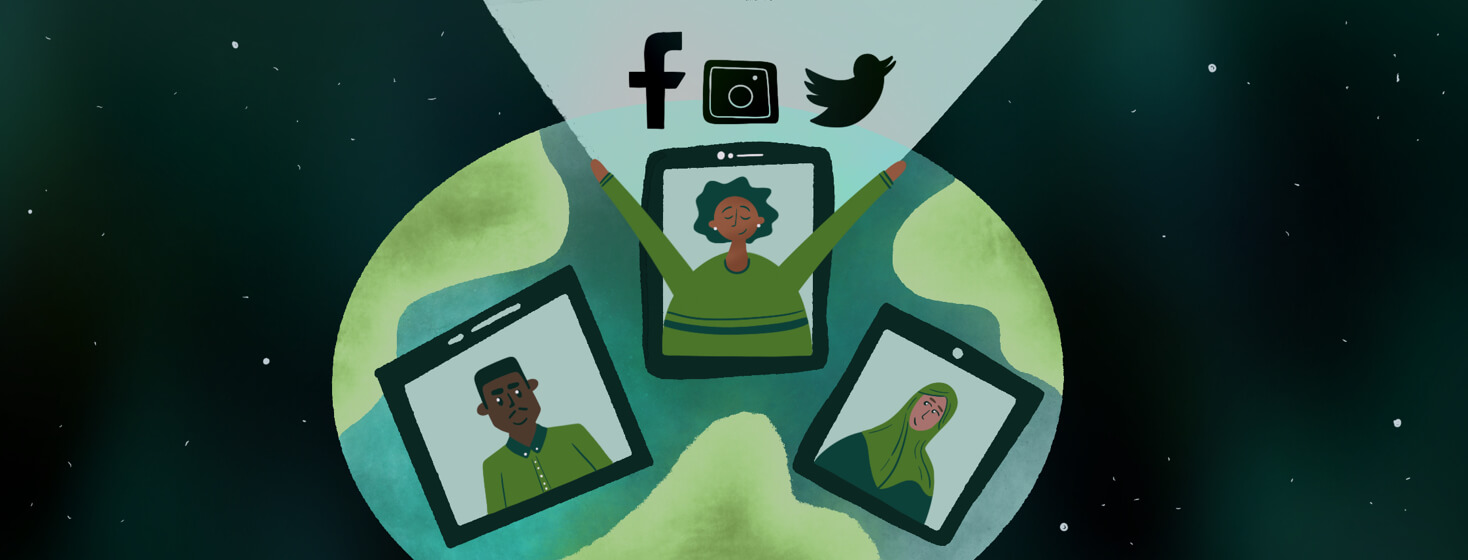Becoming a Social Media Advocate
Usually, when we speak about social media, it is not in a very favourable manner. Social media has impacted society in many negative ways. That much is undeniable. But as in everything in life, there is another side to this story.
As a patient advocate, I can tell you with total honesty that it has completely altered my way of coping with narcolepsy in a truly positive way.
I was a social media spectator
Before June 2020, social media was something I used only as a spectator. Prior to that, I didn't believe that what I had to say was important.
I can't deny that I actually felt a tiny twinge of envy race through me when I watched girls on Instagram who seemed so confident and sure of themselves, enough to expose their entire lives without fear.
What inspired me to share my story?
What gave me the push I needed to start speaking openly about my condition to the world was watching people share their stories on The Rising Voices of Narcolepsy on Project Sleep's Facebook page. They gave me the strength to believe that if they could do it, so could I.
If their story changed my life, didn't I have the duty to share mine in the hopes that it could do the same for someone else?
Why advocate on social media?
Not only can you use social media to impact other people's lives, but without realising it, your impact on them will result in them having an impact on yours.
Social media is the most powerful tool we have at our disposal that allows us to reach an astonishing amount of people from all around the world. People you never knew existed and who didn't know you existed either.
Not only can you educate them about your reality, but it means that you have the unique opportunity to educate a total stranger about yours! It is the fastest and most assured means of spreading a great deal of awareness no matter where you are.
Through social media, I have been granted access to an extremely large community of people I can relate to on an entirely different level. This would not have been possible had I not decided to open myself up.
Intersted in social media patient advocacy?
If you have been thinking about being a social media patient advocate, I recommend keeping a few important things in mind before entering this venture.
Have an honest conversation with yourself
Ask yourself why you want to do this and if you are aware of what implications this could have. It's important to be aware, as this helps to be prepared for any negative experiences that could (very possibly) occur.
Define your limits
How much do you want to share about your life? There have been times that, whilst on stimulants, I have shared things without thinking it through completely and very much regretted it later on.
Be yourself
Sometimes, it's easy for us to follow other advocates on social media platforms and try and recreate their content or how they present themselves because we believe that this will get people interested in what we're saying or doing. This is not true! Everyone shares their experiences in their unique way. Some people use photography. Others prefer writing, graphic design, video, or even just their voices (podcasts!). Do what feels right for you and what you enjoy doing.
Be as accurate as possible
No, I don't mean that you have to reference every piece of advice you give or use a disclaimer, but it is important to be careful when it comes to giving people medical advice or offering statistics that may not reflect the current reality. At the end of the day, social media isn't the only way to advocate. There are plenty of other ways to advocate that are not as public.
Advocacy is about empowering others
Simply educating someone about narcolepsy is a form of advocacy. No matter what you choose, if you do choose to share, there is one more thing that helps me stay focused when things get hard – reminding myself that it is not about me.
Advocacy is not about you. It is about sharing your experiences with the sole purpose of empowering someone else.

Join the conversation